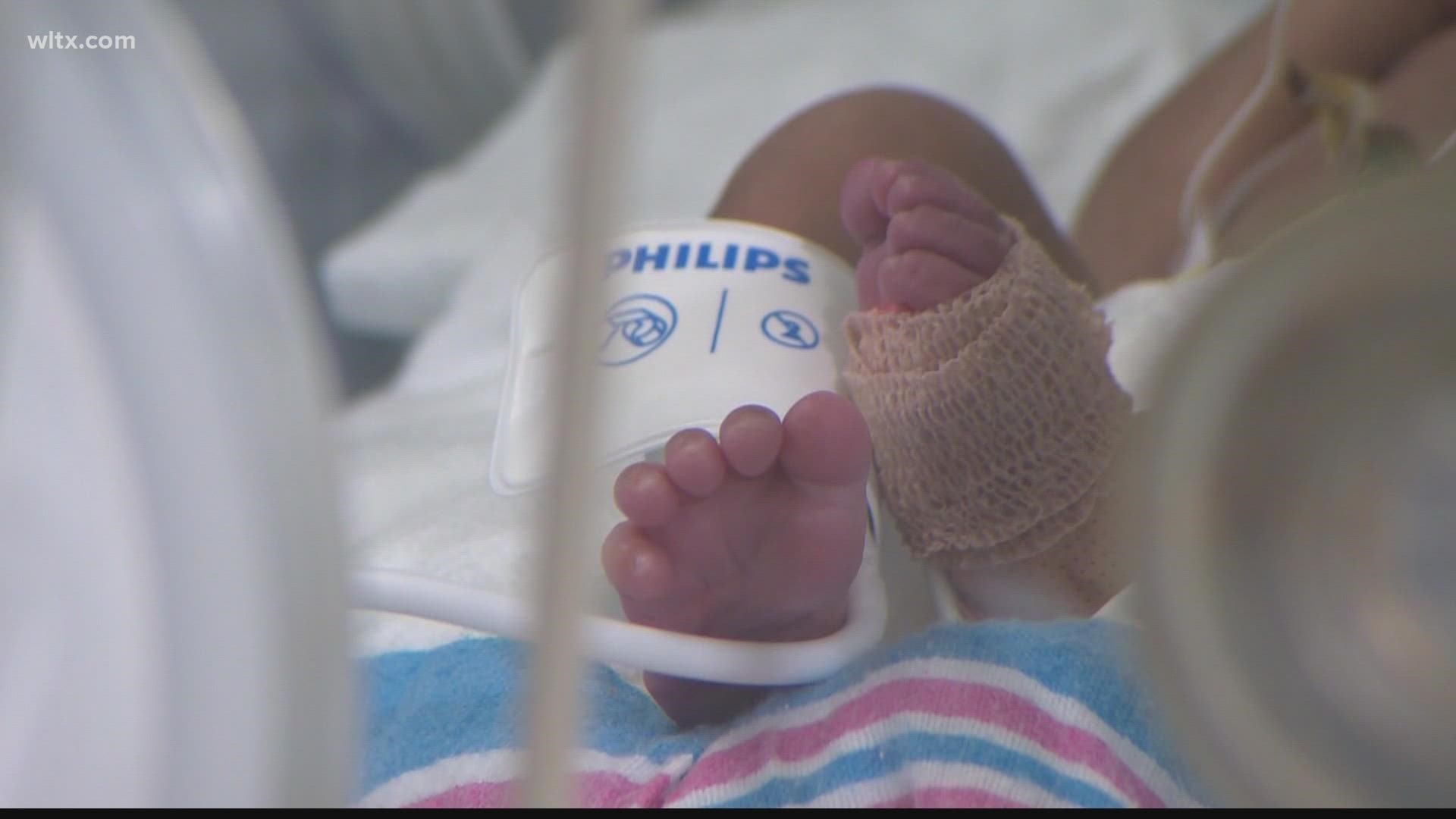COLUMBIA, S.C. — Natalie Gregory is an OB-GYN in Charleston and described what it was like practicing under South Carolina's Fetal Heartbeat Law, which passed in 2021 and took effect in June.
"We've had to stop and consult attorneys and delay people's care while we tried to figure out if we were going to lose our medical license or go to jail if we provided the care that they needed," said Gregory.
The law criminalizes doctors who perform abortions after around six weeks. It makes exceptions for pregnancies caused by rape or incest and fatal fetal anomalies. The State's Supreme Court blocked the Measure in August. However, Gregory said she's worried about future legislation.
"These bills are written without any real explanation, that written by people who aren't physicians, so they don't understand how questions would come up," said Gregory.
She added the legal limbo and possibility of tighter restrictions may force her to leave the state.
"I can easily go to a more progressive state and not have my entire career put on the line," said Gregory.
On Thursday, South Carolina Senators approved a bill adding to the state's six-week law.
Under the amended bill, survivors of sexual assault can get an abortion up to 12 weeks of pregnancy, a reduction from the current law's 20 week exception.
A physician must report the allegations within 24 hours of the abortion to the sheriff in their county. They must also provide law enforcement with the patients name, contact information, and the DNA of the fetus.
The DNA must be turned into evidence within 90 days of being notified.
"Only 8% of cases is the assailant a stranger. So oftentimes, the person that assaults you is somebody you know, somebody you care about, and you may not want to go through that whole law enforcement, criminal justice process," said South Carolina Coalition Against Domestic Violence Executive Director Sara Barber.
She added she believes the bill completely leaves out victims of domestic violence.
"we're hearing more and more about reproductive coercion, where women are pressured by an intimate partner not to use birth control, or stealthing, where birth control was removed halfway through the act," said Barber. "Women spend so much time trying not to get pregnant, but then often that ability is taken away from us. And this bill completely, doesn't acknowledge that as a reality."
The New bill also allows cases of Fatal Fetal Anomalies if two physicians confirm the child will not survive outside the womb.
These types of cases are fairly common, said Gregory.
"Every year, I have multiple patients that I take care of that have babies that are not expected to survive or would have a very, very poor quality of life," she said.
"I wish that they would trust one physician, because really one physician has the training that it takes," said Gregory. "But the fact that they are allowing it with two physicians, I think is a huge victory for the pro choice side."
Gregory tells News 19 even the state's 20 week abortion ban that's currently in place is limiting life saving care for mothers.
"We have a network where we can send people out of state, but they are all so incredibly overburdened right now that there's a weight," said Gregory. "We had a patient who had a baby with a heart defect, and she had to wait a month."
The proposal returns to the house, which last week passed a bill banning nearly all abortions.
If the House agrees on the Senate's changes, the bill heads to Gov. Henry McMaster's desk.

